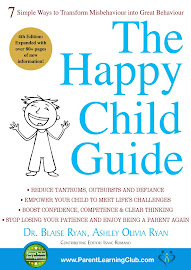Timeout is a form of control over the behavior of the child, that works very well for the kids. It can be used with the age of 18 months.
You can use the wait time to let your toddler know his behavior change and prevent the escalation of the situation. This is not a punishment per se, but it's a "time out" on positive reinforcement or attention.So if your toddler fights with his sister, appropriate timeout if it does what it says, then the time-out is appropriate.
I would use the following "rules" when you use a time-out.
Your child has only a 1 minute per year of age at the time, so for 3 years, 3 minutesthe ideal place for the time-out should be uninteresting but make the bedroom (where ever you choose, make sure it's a safe place) do not let your child out if he's in the midst of tantrum or crying spells, even if it's time to wait until it settles down, as it must connect-timeout, ending cries fiercely (rather teach him calm rewarded), your child should apologize when it comes back, but it should behave sensibly-further violations may require repeat timeout, I prefer to give a verbal warning-once your child know that you are seriously, often verbal warning would be sufficient, (which can be useful when you are out!)
Use verbal warning: when your child is behaving inappropriately, saying "Whoa, what to do (be specific) or you will need to have a time-out." if he didn't stop, give a second warning, "I said that if you do not stop this (be specific) you receive a time out, so stop Talking now. If it is not stopped," I told you to stop doing that (be specific) and now you'll have a time out. "Then immediately your child's room, the timeout does not give a chance to yet.
Once your child know that you always follow what you're saying, verbal warning may be enough to stop the behavior, you don't want (very useful in the supermarket).
Don't worry if your toddler happily playing in his room in time out.This is not a punishment, but the form control the behavior of the child, and it will still work even if your child is happy in timeout.
If your child is leaving a room, put it back.Don't make a big fuss, because you don't want to turn into the game.Close the door behind you and then go back to your activity (Act as if you're completely disinterested in the whole thing to remember is that you want to ignore the behavior, you don't want to).
Never let your child out of the timeout when he is tantrum or screaming fit he will just think that shout or tantrum got it out-it's not the message you want to simply wait until it is a little quieter. open the door when you hear a sob, instead of shouting.
Use the timeout when the situation becomes out of control. let your child know that you mean what you say. over time you will actually use wait less and less. remember, testing limits is part of the development of normal child. match your child's behavior is part of parenting.
DR Maud is a pediatrician who provides up-to-date medical information and practical medical advice for parents of babies and toddlers on their site Baby health questions and answers.
 "Look at those feet! Aren't they sweet?" Yes-when they're walking, standing, leaping, and landing. And when they're kicking balls or leaves. But not when they're kicking people! In simple words and charming full-color illustrations, this book helps little ones learn to use their feet for fun, not in anger or frustration. It also includes tips for parents and caregivers on how to help toddlers be sweet with their feet.
"Look at those feet! Aren't they sweet?" Yes-when they're walking, standing, leaping, and landing. And when they're kicking balls or leaves. But not when they're kicking people! In simple words and charming full-color illustrations, this book helps little ones learn to use their feet for fun, not in anger or frustration. It also includes tips for parents and caregivers on how to help toddlers be sweet with their feet. 
